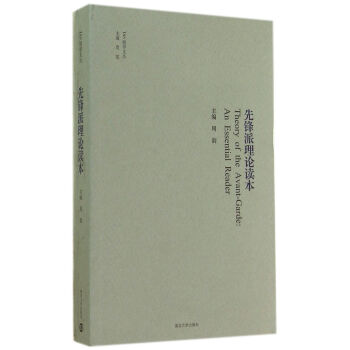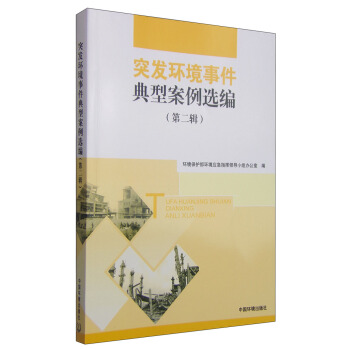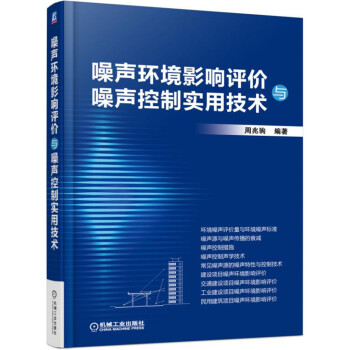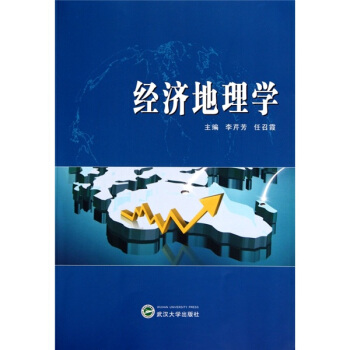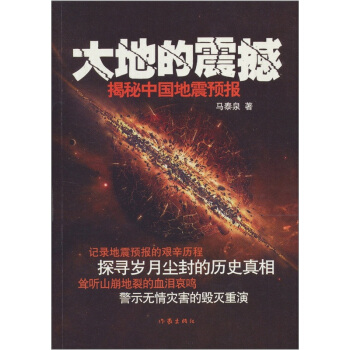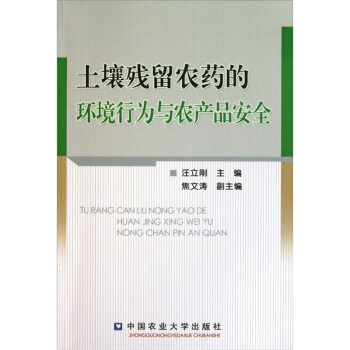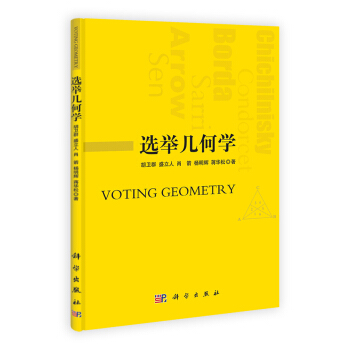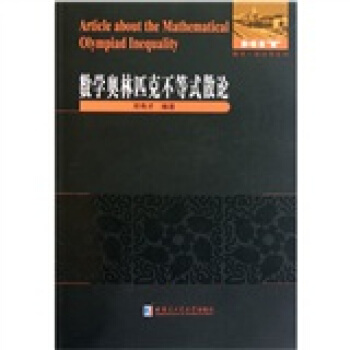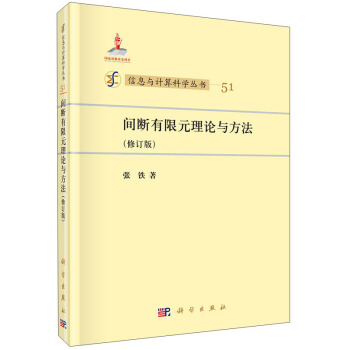

具体描述
内容简介
有限元方法是现代科学与工程计算领域中最广泛使用的数值方法之一, 间断有限元方法则是传统(连续)有限元方法的创新形式、改进和发展。《信息与计算科学丛书:间断有限元理论与方法(修订版)》系统地阐述间断有限元基本理论、思想和方法。《信息与计算科学丛书:间断有限元理论与方法(修订版)》主要针对椭圆方程、一阶双曲方程、一阶正对称双曲方程组、对流扩散方程、Stokes 方程和椭圆变分不等式等偏微分方程定解问题, 介绍各种形式间断有限元方法的构造、稳定性和误差分析、超收敛性质、后处理技术、后验误差估计和自适应计算。
目录
第1章 预备知识1.1 Sobolev空间简介
1.2 嵌入越
1.3 有限元空间及其性质
1.3.1 有限元空间
1.3.2 插值和投影逼近
1.3.3 逆性质和迹不等式
1.4 椭圆边值问题的有限元方法
1.4.1 边值问题的适定性
1.4.2 连续有限元逼近
第2章 椭圆问题惩罚形式的间断有限元方法
2.1 历史的回顾
2.2 惩罚方法的一般理论
2.3 相容方法
2.4 不相容方法
2.5 离散方程组的条件数
2.6 后验误差分析
2.6.1 后验误差上界估计
2.6.2 后验误差下界估计
2.6.3 数值算法
2.7 插值函数的超逼近性质
2.7.1 一维插值函数的超逼近性质
2.7.2 高维插值函数的超逼近性质
2.8 后处理技术与超收敛性
2.8.1 超逼近估计
2.8.2 i2-投影的后处理技术
2.8.3 导数小片插值恢复技术
2.8.4 整体插值后处理技术
第3章 椭圆相关问题的间断有限元方法
3.1 对流占优反应扩散方程
3.1.1 间断有限元格式
3.1.2 稳定性与误差分析
3.1.3 超收敛与后验误差估计
3.2 Stokes问题
3.2.1 线性速度-常数压力间断元
3.2.2 误差分析
3.2.3 高次间断有限元
3.3 椭圆变分不等式问题
3.3.1 问题及其间断有限元近似
3.3.2 最优误差估计与迭代求解
3.4 第二类椭圆变分不等式
3.4.1 问题及其正则化
3.4.2 间断有限元方法
3.4.3 先验误差估计
3.4.4 后验误差估计
3.4.5 数值计算例
第4章 数值通量形式的间断有限元方法
4.1 介绍
4.2 数值通量方法的基本公式
4.3 基本公式的理论分析
4.4 不稳定格式
4.5 广义局部间断有限元方法
4.6 对流扩散问题
4.6.1 迎风型间断有限元格式
4.6.2 误差分析
4.6.3 对流扩散反应方程
4.7 椭圆相关问题
第5章 一阶双曲方程的间断有限元方法
5.1 起源与历史发展
5.2 问题及其间断有限元格式
5.3 最优阶误差估计
5.4 三角元的超收敛估计
5.5 矩形元的超收敛估计
5.5.1 对流方向平行坐标轴情形
5.5.2 一般情形的矩形元
5.6 有关近似的超收敛估计
5.6.1 对流方向导数的后处理
5.6.2 负范数误差估计与均值逼近
5.6.3 数值计算例
5.7 后验误差分析
5.7.1 后验误差估计:特殊网格情形
5.7.2 后验误差估计:一般网格情形
5.7.3 后验误差下界估计
5.7.4 数值计算例
5.8 非定常问题
5.8.1 半离散间断有限元逼近
5.8.2 全离散间断有限元逼近
5.8.3 后验误差分析
第6章 一阶正对称双曲方程组的间断有限元方法
6.1 -阶正对称_方程组
6.2 拟迎风间断有限元方法
6.2.1 拟迎风格式及其稳定性
6.2.2 最优阶误差估计
6.2.3 负范数误差估计
6.2.4 数值计算例
6.3 惩罚形式的间断有限元方法
6.4 插值函数的超逼近性质
6.4.1 强正规三角剖分
6.4.2 几乎一致的矩形剖分
6.5 惩罚方法的超收敛估计
6.5.1 线性三角元
6.5.2 双线性矩形元
6.6 非定常问题
6.6.1 半离散间断有限元近似
6.6.2 全离散间断有限元近似
6.7 显式时空间断有限元方法
6.7.1 时空间断有限元格式及其稳定性
6.7.2 误差分析
6.8 半显式时空间断有限元格式
6.8.1 半显式格式
6.8.2 误差分析
参考文献
索引
《信息与计算科学丛书》已出版书目
前言/序言
用户评价
从内容组织上看,这本书的逻辑递进简直是教科书级别的典范。它并没有急于抛出最前沿、最复杂的理论,而是像剥洋葱一样,一层一层地深入。开篇对基础有限元方法的回顾和修正,为后续引入“间断”这一核心概念做了完美的铺垫,就像是在平坦的场地上先修筑了坚实的地基。当谈到间断性带来的挑战,比如守恒律的近似、以及需要引入特定的数值通量时,作者的解释非常到位,没有使用太多晦涩的行话,而是用直观的物理图像去引导读者理解数值离散的必要性。尤其是关于不同通量函数(如Lax-Friedrichs, Roe, HLLC等)的对比分析,它不仅展示了公式,还深入探讨了它们在处理激波和接触间断时的不同表现,这种对比分析的深度,远超我之前读过的任何一本同类书籍,让人对不同方法的优劣有了深刻的认识。
评分坦白说,这本书的学术深度是毋庸置疑的,但最让我感到惊喜的是它在章节末尾设置的“展望与挑战”部分。这部分内容虽然不是严格意义上的核心理论,但它为读者指明了未来的研究方向。它没有停留在已有的成熟理论上,而是坦诚地指出了当前间断有限元方法在处理某些极端非线性问题或高维问题时仍然存在的瓶颈,比如如何更有效地处理网格畸形带来的误差放大效应,以及如何将这些方法与机器学习算法进行更深层次的融合。这种开放式的讨论,极大地激发了我对该领域继续深耕的兴趣。它告诉我,学习知识的目的不仅是掌握现有工具,更是要认识到工具的局限性,并思考如何去超越它。这本书真正做到了“授人以渔”,培养读者独立思考和创新研究的能力。
评分这本书的封面设计得非常大气,配色沉稳中带着一丝科技感,封面的设计语言似乎也在暗示着内容的深度与广度。我之前接触过一些数值计算方面的书籍,但很多都停留在理论推导的层面,对于实际应用场景的描述往往一带而过。这本书的亮点在于,它似乎能将抽象的数学概念与具体的工程问题紧密地联系起来。比如,在介绍一些高级的算子时,作者不仅仅是给出了定义和性质,还穿插了如何利用这些工具来解决流体力学或电磁学中的非光滑问题。这种“理论先行,应用跟进”的结构,对于我这样既想夯实理论基础又渴望解决实际难题的研究生来说,简直是福音。特别是关于网格划分和误差估计的部分,文字描述得非常详尽,图示也恰到好处地帮助理解,让人感觉作者是真正花心思去揣摩初学者的困惑点,而不是仅仅将自己的知识点堆砌起来。这种体贴的叙述方式,极大地降低了理解复杂理论的门槛,让人在阅读时不会感到枯燥或迷茫,而是充满探索的动力。
评分这本书的排版和印刷质量绝对是业界良心之作。拿到实体书的那一刻,我就被它清晰的字体和合理的行距所吸引。很多专业书籍为了塞进更多内容,往往牺牲了阅读体验,但这本书显然在这方面做了精心的平衡。页边距留得恰到好处,无论是做笔记还是夹放参考资料,都有足够的空间。更值得称赞的是,公式的排版非常规范和美观,复杂的张量符号和积分符号看起来清晰锐利,完全没有普通教材中那种模糊不清的“糊状”感。这种高质量的呈现,让我在长时间的深度阅读中,眼睛不容易感到疲劳,这对于需要逐字逐句啃下复杂数学推导的学习者来说,是至关重要的。它体现了一种对知识的尊重,让学习过程本身也成了一种享受,而不是一种折磨。
评分这本书的作者团队显然是该领域的资深专家,他们的洞察力体现在对细节的把握上。我特别注意到,在一些关键定理的证明环节,作者没有采用那种只给结果、省略中间步骤的“高手秘籍”式写法。相反,每一步逻辑推导都交代得清清楚楚,甚至连一些看似微不足道的代数操作,作者也给出了简短的注释,解释为什么要这样做,这对于非数学专业背景的工程师和物理学家来说,简直是及时雨。此外,书中对一些经典算例的数值模拟结果展示得非常详尽,不仅仅是给出最终的解曲线,还展示了不同时间步长或网格密度下的收敛趋势图,这对于理解数值方法的稳定性和精度具有极强的说服力。这些深入到实现层面的细节,让这本书不仅仅是一本理论参考书,更像是一本高效实战指南。
评分需要较好的数学功底,只是想编程的,这本书不适合。
评分The subtitle, Nonclassical Fields, is perhaps not as accurate as it might be as a summary of content; or to put it another way, if my aim from the start had been to write a book on this topic, parts of that book would differ significantly from what follows here. Possibly the most important thing missing, and something that should be said, is that there are two quite distinct paths to a definition of nonclassicality in quantum optics. The first is grounded in the existence, or otherwise, of a nonsingular and positrve Glauber-Sudarshan P function. The physical grounding is in the treatment of optical measurements, specifically the photoelectric effect: for a given optical field, can the photoelectron counting statistics, including all correlations, be reproduced by a Poisson process of photoelectron generation driven by a classicallight intensity, allowed most generally to be stochastic? Viewed at a more informallevel, the question asks whether or not the infamous proposal of Bohr, Kramers, and Slater for the interaction of classical light and quantized atoms can be upheld in the presence of the observable photoelectron counting statistics.
评分The subtitle, Nonclassical Fields, is perhaps not as accurate as it might be as a summary of content; or to put it another way, if my aim from the start had been to write a book on this topic, parts of that book would differ significantly from what follows here. Possibly the most important thing missing, and something that should be said, is that there are two quite distinct paths to a definition of nonclassicality in quantum optics. The first is grounded in the existence, or otherwise, of a nonsingular and positrve Glauber-Sudarshan P function. The physical grounding is in the treatment of optical measurements, specifically the photoelectric effect: for a given optical field, can the photoelectron counting statistics, including all correlations, be reproduced by a Poisson process of photoelectron generation driven by a classicallight intensity, allowed most generally to be stochastic? Viewed at a more informallevel, the question asks whether or not the infamous proposal of Bohr, Kramers, and Slater for the interaction of classical light and quantized atoms can be upheld in the presence of the observable photoelectron counting statistics.
评分The subtitle, Nonclassical Fields, is perhaps not as accurate as it might be as a summary of content; or to put it another way, if my aim from the start had been to write a book on this topic, parts of that book would differ significantly from what follows here. Possibly the most important thing missing, and something that should be said, is that there are two quite distinct paths to a definition of nonclassicality in quantum optics. The first is grounded in the existence, or otherwise, of a nonsingular and positrve Glauber-Sudarshan P function. The physical grounding is in the treatment of optical measurements, specifically the photoelectric effect: for a given optical field, can the photoelectron counting statistics, including all correlations, be reproduced by a Poisson process of photoelectron generation driven by a classicallight intensity, allowed most generally to be stochastic? Viewed at a more informallevel, the question asks whether or not the infamous proposal of Bohr, Kramers, and Slater for the interaction of classical light and quantized atoms can be upheld in the presence of the observable photoelectron counting statistics.
评分The subtitle, Nonclassical Fields, is perhaps not as accurate as it might be as a summary of content; or to put it another way, if my aim from the start had been to write a book on this topic, parts of that book would differ significantly from what follows here. Possibly the most important thing missing, and something that should be said, is that there are two quite distinct paths to a definition of nonclassicality in quantum optics. The first is grounded in the existence, or otherwise, of a nonsingular and positrve Glauber-Sudarshan P function. The physical grounding is in the treatment of optical measurements, specifically the photoelectric effect: for a given optical field, can the photoelectron counting statistics, including all correlations, be reproduced by a Poisson process of photoelectron generation driven by a classicallight intensity, allowed most generally to be stochastic? Viewed at a more informallevel, the question asks whether or not the infamous proposal of Bohr, Kramers, and Slater for the interaction of classical light and quantized atoms can be upheld in the presence of the observable photoelectron counting statistics.
评分The subtitle, Nonclassical Fields, is perhaps not as accurate as it might be as a summary of content; or to put it another way, if my aim from the start had been to write a book on this topic, parts of that book would differ significantly from what follows here. Possibly the most important thing missing, and something that should be said, is that there are two quite distinct paths to a definition of nonclassicality in quantum optics. The first is grounded in the existence, or otherwise, of a nonsingular and positrve Glauber-Sudarshan P function. The physical grounding is in the treatment of optical measurements, specifically the photoelectric effect: for a given optical field, can the photoelectron counting statistics, including all correlations, be reproduced by a Poisson process of photoelectron generation driven by a classicallight intensity, allowed most generally to be stochastic? Viewed at a more informallevel, the question asks whether or not the infamous proposal of Bohr, Kramers, and Slater for the interaction of classical light and quantized atoms can be upheld in the presence of the observable photoelectron counting statistics.
评分需要较好的数学功底,只是想编程的,这本书不适合。
评分需要较好的数学功底,只是想编程的,这本书不适合。
评分The subtitle, Nonclassical Fields, is perhaps not as accurate as it might be as a summary of content; or to put it another way, if my aim from the start had been to write a book on this topic, parts of that book would differ significantly from what follows here. Possibly the most important thing missing, and something that should be said, is that there are two quite distinct paths to a definition of nonclassicality in quantum optics. The first is grounded in the existence, or otherwise, of a nonsingular and positrve Glauber-Sudarshan P function. The physical grounding is in the treatment of optical measurements, specifically the photoelectric effect: for a given optical field, can the photoelectron counting statistics, including all correlations, be reproduced by a Poisson process of photoelectron generation driven by a classicallight intensity, allowed most generally to be stochastic? Viewed at a more informallevel, the question asks whether or not the infamous proposal of Bohr, Kramers, and Slater for the interaction of classical light and quantized atoms can be upheld in the presence of the observable photoelectron counting statistics.
相关图书
本站所有内容均为互联网搜索引擎提供的公开搜索信息,本站不存储任何数据与内容,任何内容与数据均与本站无关,如有需要请联系相关搜索引擎包括但不限于百度,google,bing,sogou 等
© 2026 book.idnshop.cc All Rights Reserved. 静思书屋 版权所有

![高等数学中的若干问题与方法 [Some Problems and Methods of Higher Mathematics] pdf epub mobi 电子书 下载](https://pic.tinynews.org/11729531/55c162e4N88da7047.jpg)
![大气气溶胶偏振遥感 [Atmospheric Aerosol Polarized Remote Sensing] pdf epub mobi 电子书 下载](https://pic.tinynews.org/11779700/564e9115Ne1bd2c8d.jpg)
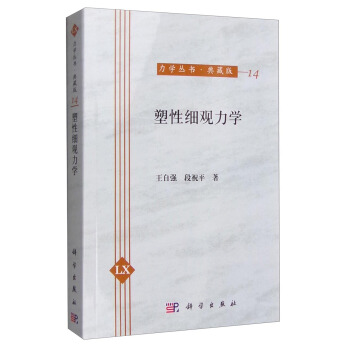
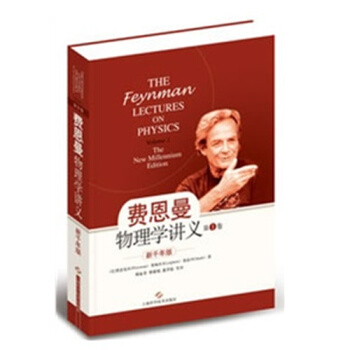
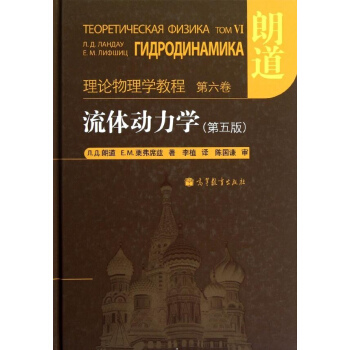
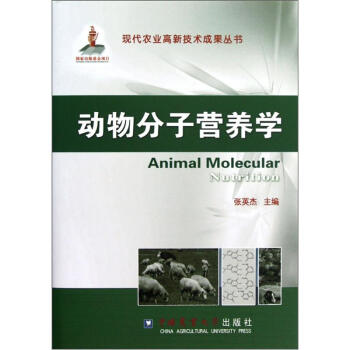
![数学与金融经典教材:一般平衡态的理论与证明(影印版)(英文版) [General Equilibrium Theory and Evidence] pdf epub mobi 电子书 下载](https://pic.tinynews.org/11273586/rBEhWlHdNd0IAAAAAAKLos-rbXcAAA7LgPQsOAAAou6146.jpg)
